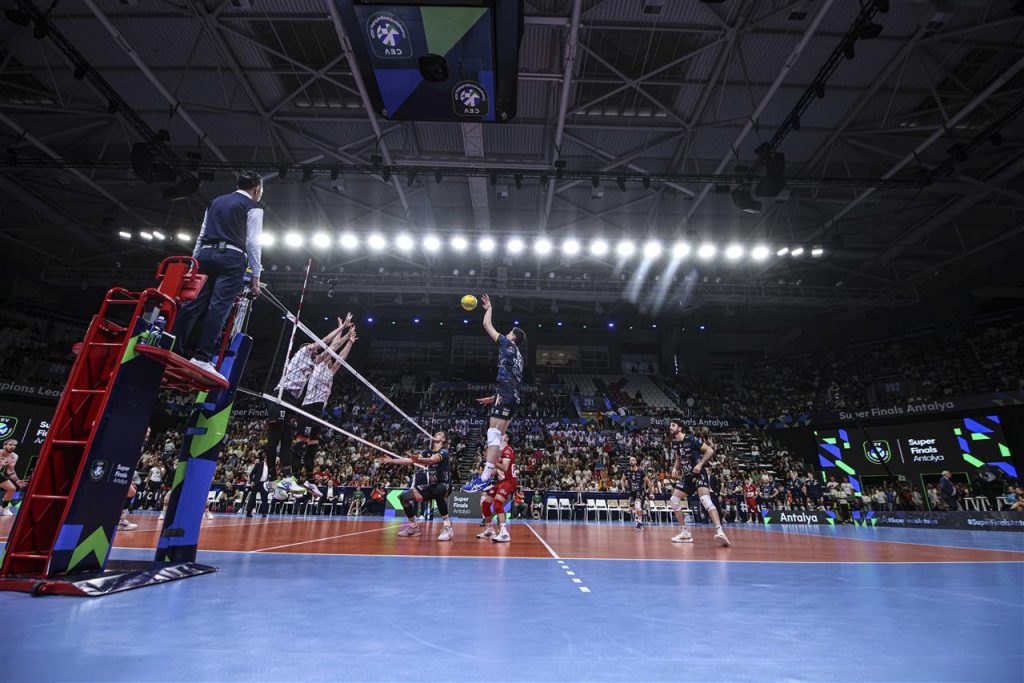
The recent election of the president for the European Volleyball Confederation (CEV) has stirred emotions, with tensions not subsiding but rather intensifying. Rumors are swirling, and these have been confirmed through an statement from Artur Popko, President of the Polish Volleyball League and Vice President of the Polish Volleyball Federation for the Polish media. Popko has expressed deep dissatisfaction with the format of European club competitions, hinting at the potential formation of a separate league made up of elite teams—a move similar to what has been seen in basketball and attempted in football.
This development could be seen as a natural progression, as debates around the structure and profitability of European club competitions for top teams have been ongoing. The attractiveness of these tournaments has been questioned for quite some time. However, it’s important to recall that over four years ago, the Association of Professional Volleyball Clubs (ACPV) was established with the mission to harmonize cooperation with governing bodies, propose a new club competition structure, and devise a strategy for better marketing and revenue sharing among stakeholders. That initiative was obstructed and ultimately did not come to fruition.
Now, we are at a fascinating juncture. The ACPV, which aimed for collaboration with top institutions, never took off. The existing structure persisted without significant public disagreements, and no high-profile disputes arose—until now. Just weeks after the election, as the new leadership is still settling in, these threats have emerged. The timing of these developments seems linked to the outcome of the recent CEV elections.
During the previous administration, even with the presence of representatives from powerful federations, there were no loud public complaints, and major events continued to be organized under CEV’s auspices. Interestingly, Popko’s dissatisfaction and the push for a new competition format come at a time when the new leadership hasn’t even had the opportunity to implement its proposed reforms. It’s important to mention that Popko’s federation had its own candidate in the recent elections. Even during prior administrations, Poland was represented in the CEV’s decision-making bodies, alongside Italy’s candidate, Renato Arena. Arena, a close associate of the outgoing president, played a significant role in shaping the policies now facing criticism from several federations, including Poland.
The question remains: why were there no such public criticisms during the last 8 years, when these federations had ample opportunity to influence decisions? Now, weeks after the election, the rhetoric has shifted to a more confrontational tone.
Popko’s statements about a potential breakaway league echo similar movements in basketball and football, where the top clubs have sought more control over their competitions and finances. With many European volleyball clubs, particularly in Italy, Poland and Turkey, dissatisfied with the current prize distribution in European competitions, the possibility of creating a Super League is being seriously considered. Popko emphasized in his recent interview that if CEV fails to present a satisfactory proposal, discussions with major federations could lead to a new competition.
While the concerns raised by Popko and others are valid, the approach of immediately threatening a breakaway league seems premature. It would have been more constructive to first engage in dialogue with the new CEV leadership, offering them the opportunity to address these issues collaboratively. After all, the electoral process and governance structures currently criticized were inherited from previous administrations, in which the dissenting federations had considerable influence.
As of now, the idea of a separate European volleyball league is still in its infancy, but the discontent among top clubs over prize money and the increasing number of uncompetitive matches is palpable. The comparison to basketball’s EuroLeague is not far-fetched—top clubs want more elite matchups, and fewer games against weaker teams. The stakes are high, and whether this is a legitimate threat to CEV’s existing structure or simply a push for reform remains to be seen.
The new CEV leadership deserves the chance to implement the reforms they’ve campaigned on. Constructive dialogue, rather than public ultimatums, is the pathway to meaningful change. European volleyball stands at a crossroads, and the choices made now will shape the sport’s future for years to come.
It’s time for federations, clubs, and governing bodies to come together, address legitimate concerns, and work collaboratively toward a more prosperous and unified European volleyball landscape.